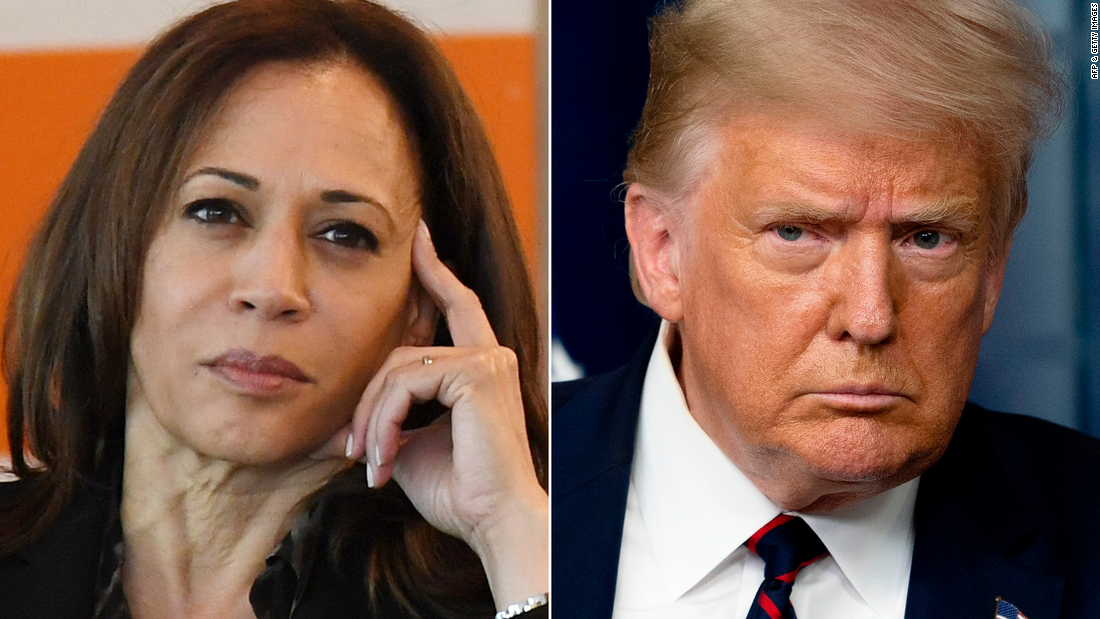Former President Donald Trump has ignited a fresh firestorm in the American media landscape. In a charged post-election statement, he lashed out at CBS News, accusing them of deliberately editing an interview with Vice President Kamala Harris in a way that misled the public. The result, according to Trump, was “outright election fraud.” His post has since sparked intense debate, with media watchdogs, journalists, and political analysts weighing in.
The Root of Trump’s Outrage
Trump’s claims center on a segment aired by 60 Minutes, where Harris appeared for an interview shortly before the 2024 presidential election. Trump alleged that CBS spliced in unrelated responses to make Harris appear more composed and competent. “They used different answers—better ones—from other parts of the interview,” he posted on Truth Social, branding the move as “election-changing.”
CBS Pushes Back: Transparency in Editing
In response to Trump’s bombshell accusation, CBS News defended its practices, stating that edits were made for clarity and time constraints—not to mislead viewers. The network then aired the full, unedited version of the interview to counter claims of manipulation. According to CBS, this is common in broadcast journalism, and the editorial process is governed by a strict code of ethics aimed at transparency.
Trump Escalates: Calls for CBS License Revocation
Trump did not back down. In fact, he doubled down, urging the Federal Communications Commission (FCC) to revoke CBS’s broadcasting license. He also called for the permanent cancellation of 60 Minutes, stating, “The cheats at 60 Minutes should be fired immediately.” Trump’s pointed suggestion that CBS was “bribed” further fueled the controversy, though no evidence has been presented to support such a claim.
A Pattern of Media Confrontation
This clash isn’t new. Trump’s combative relationship with mainstream media outlets like CBS, CNN, and MSNBC dates back to his first campaign in 2016. During his presidency, he frequently accused major news organizations of spreading “fake news” and pushing partisan agendas. In return, these outlets often scrutinized Trump’s actions with intensity. The CBS-Harris interview is just the latest chapter in this ongoing media feud.
Public Opinion: Divided and Vocal
Unsurprisingly, the incident has led to a polarized reaction. Trump supporters echo his accusations, viewing the incident as proof of entrenched media corruption. Meanwhile, critics accuse Trump of attempting to erode public trust in journalism to avoid accountability. This push-pull underscores the larger cultural battle over who controls the narrative in American politics.
What the CBS Incident Means for Journalism
This controversy highlights a growing need for media organizations to practice radical transparency. Even perceived bias can damage credibility. As viewers become more skeptical and discerning, newsrooms must go beyond ethical obligations—they must actively demonstrate impartiality.
Election Interference or Editorial Oversight?
The phrase “election interference” carries heavy implications. Trump’s framing of CBS’s edits as “fraud” implies intent, not error. However, without hard proof, this remains speculative. Still, the narrative has traction because of the increasing influence media wields over political perception, especially in swing states during tight races.
Regulatory Implications: Can Licenses Be Revoked?
Trump’s call for revoking CBS’s license raises legal and constitutional questions. While the FCC can penalize broadcasters, yanking a license over editorial choices is rare and would likely face First Amendment challenges. Experts say Trump’s demand is more symbolic than practical, aimed at rallying his base rather than resulting in policy.
Media Ethics Under the Microscope
Journalistic ethics demand balance, context, and fairness. While editing for brevity is common, selectively showcasing clips that could alter perception breaches trust. CBS’s decision to air the unedited interview was a smart move, yet it may not fully absolve them in the court of public opinion.
FAQs
What did Trump accuse CBS of doing?
Trump accused CBS of altering Kamala Harris’ interview to portray her more favorably, calling it election fraud.
How did CBS respond to the accusation?
CBS aired the full unedited interview and stated that edits were made only for clarity and brevity, not to mislead.
Is it legal to revoke a broadcaster’s license over editing?
Such actions are extremely rare and would likely face legal hurdles under First Amendment protections.
Has Trump made similar accusations before?
Yes, Trump has a long history of accusing mainstream media of bias and misinformation.
Was there any evidence of intentional manipulation by CBS?
As of now, no concrete evidence has surfaced proving intentional manipulation by the network.
What does this mean for future media coverage of elections?
The incident may lead to increased scrutiny and pressure on media outlets to provide unedited or minimally edited content.

